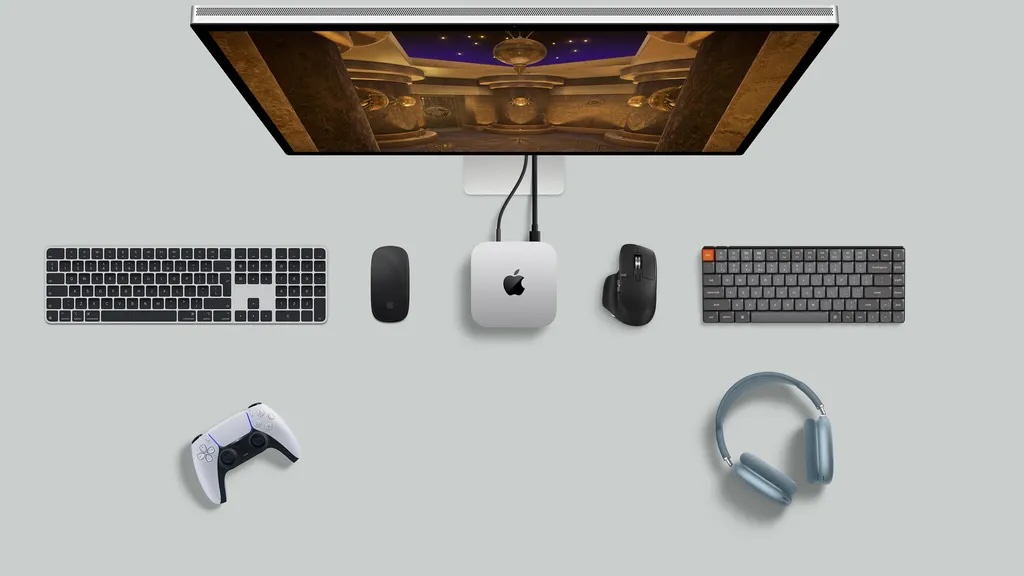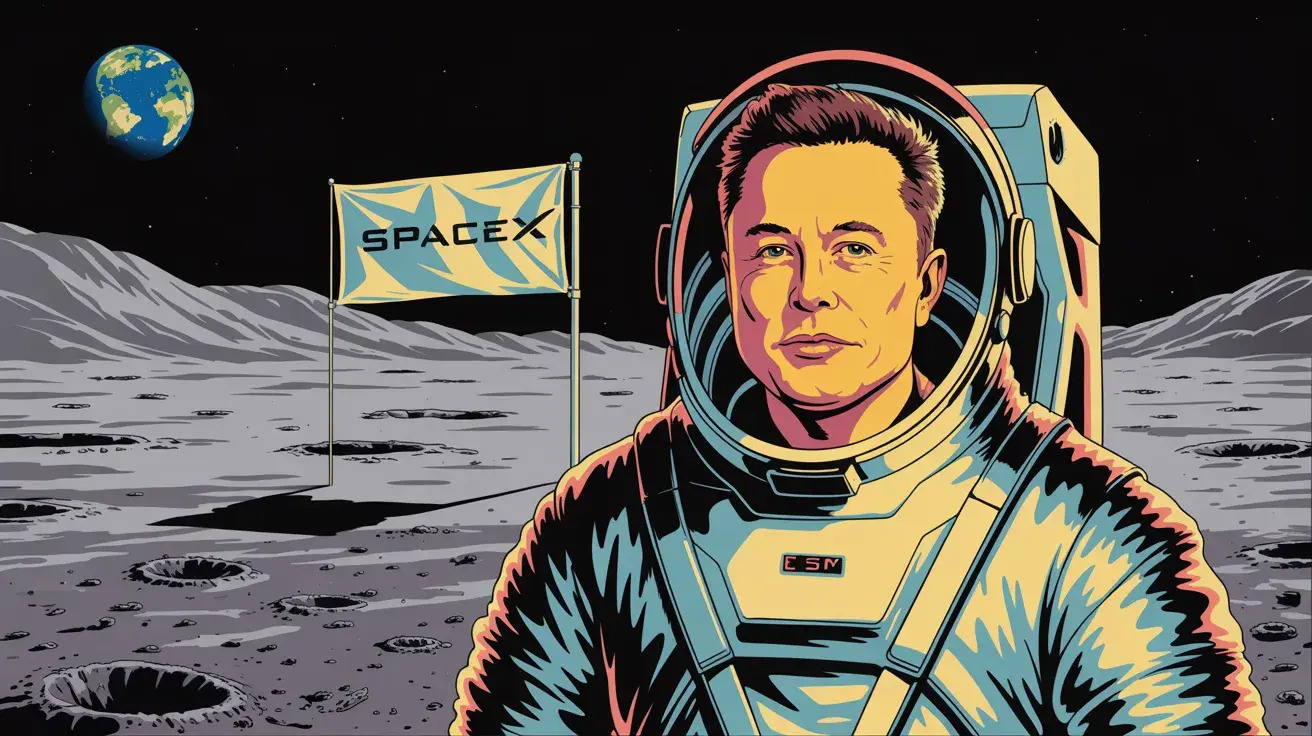Nvidia tops Apple and Microsoft
PLUS: Old EV batteries to power AI data centers
Read Online | Sign Up | Advertise
Good morning, tech enthusiasts. After a rocky start this year, Nvidia just leapfrogged Apple and Microsoft to become the world’s most valuable public company, with its market cap hitting a record-high of $3.7T.
But as analysts talk up even bigger gains, will chip shortages and export bans threaten Nvidia’s new reign?
In today’s tech rundown:
Nvidia crowned world’s most valuable company
Old EV batteries get new life as AI microgrids
Softbank funds giant climate balloon startup
Blue Origin eyes Trump contracts after Musk feud
Quick hits on other major tech news
LATEST DEVELOPMENTS
NVIDIA
💰 Nvidia crowned world’s most valuable company

Image source: Creative Commons/Wikimedia Commons
The Rundown: AI chipmaker Nvidia just soared over 4% to reclaim its crown as the world’s most valuable public company — at a staggering $3.77T market cap. This surge reflects how deeply the AI revolution is now shaping the market’s direction.
The details:
In a first for this year, Nvidia’s $3.77T market cap edged out Microsoft's and Apple’s $3.66T and $3T, respectively.
Nvidia’s AI chips now power approximately 90% of the world’s AI data centers and are critical for tech giants like Amazon, Microsoft, Google, and Meta.
Analysts are bullish on Nvidia, with Loop Capital’s Ananda Baruah setting the highest target at $250, suggesting a potential market cap of $6T.
Nvidia’s stock faced a serious dip this year due to trade disputes and DeekSeek, but rose more than 14% since its May earnings report.
Why it matters: Nvidia’s stock surge reflects the world’s soaring demand for AI chips. But as that demand grows, supply constraints are becoming more apparent — especially with U.S. export bans curbing sales to China. Meanwhile, Apple and Microsoft also continue to battle for the top spot on the global tech leaderboard.
REDWOOD MATERIALS
🪫 Old EV batteries get new life as AI microgrids

Image source: Redwood Materials
The Rundown: Redwood Materials, an electric vehicle battery recycling venture founded by Tesla’s co-founder JB Straubel, announced that it plans to repurpose old EV batteries to provide microgrids for AI data centers.
The details:
Dubbed Redwood Energy, the project is launching with Crusoe, an AI startup that Straubel, Redwood’s CEO, invested in back in 2021.
Redwood’s first microgrid, with 12 MW of power and 63 MWh of capacity, is being used to power a 2,000-GPU modular data center for Crusoe.
The company says it receives 20 GWh of batteries a year, the equivalent of 250K EVs — about 90% of discarded battery packs in North America.
The company says that the batteries it receives for recycling still have up to 50% capacity — not enough to power an EV but enough life for other purposes.
Why it matters: By 2028, the company aims to deploy 20 gigawatt-hours of grid-scale storage, positioning itself as the world’s leading repurposer of used EV battery packs. Plus, these batteries can be powered by wind or solar energy (Crusoe’s system will be powered by solar) or connected directly to the grid.
TECH FOR GOOD
🎈Softbank funds giant climate balloon startup

Image source: Sceye
The Rundown: Airspace startup Sceye just nabbed $15M from SoftBank to launch its massive, zeppelin-like helium balloons into the air. The sensor-packed airships float 20km above the Earth and are designed to capture granular climate data in real time.
The details:
Each balloon, equipped with specialized cameras and radars, is capable of monitoring greenhouse gases, wildfires, flooding, and particulate matter.
Sceye has built more than 20 of its featherweight airships in New Mexico, with each measuring 214 feet long, about the size of a Boeing 747’s wingspan.
Like Google’s Loon once did, the airships also beam internet and broadband connectivity to remote, underserved, or disaster-stricken regions.
Sceye’s airships are designed to operate for months at a time in the stratosphere, far above commercial air traffic and weather systems.
Why it matters: Sceye’s helium airships are pioneering a new class of High-Altitude Platform Systems that fill a critical gap between drones, which fly lower and for shorter periods, and satellites, which are much higher and farther away. Valued at nearly $600M, Sceye has already partnered with NASA and the U.S. Geological Survey.
BLUE ORIGIN
🚀 Blue Origin eyes Trump contracts after Musk feud

Image source: Blue Origin
The Rundown: Space company Blue Origin founder Jeff Bezos is reportedly seizing the moment as the once-cozy relationship between President Donald Trump and Elon Musk unravels, pitching Blue Origin as a reliable partner for Trump's space goals.
The details:
According to The Wall Street Journal, Bezos has met with Trump twice this month to strengthen Blue Origin’s position with the administration.
Blue Origin CEO Dave Limp has also met with Trump’s chief of staff, Susie Wiles, at the White House.
Trump reportedly expressed his desire for a crewed Moon mission during his current term, and Blue Origin aims to be a key partner to achieve this vision.
SpaceX has long dominated government contracts, recently securing $5.9B for 28 missions, while Blue Origin received $2.4B for just seven launches.
Why it matters: The stakes for the U.S. space industry are high. SpaceX, helmed by Musk, has long outpaced Blue Origin in both technical achievements and government contracts. But as Trump distances himself from Musk, Bezos sees a rare opportunity to close the gap and position his company as the administration’s go-to space contractor.
QUICK HITS
📰 Everything else in tech today
Amazon is investing more than $4B to triple its delivery network by 2026 and is expanding its Prime service to over 4K small towns in the U.S.
Softbank’s CEO Masayoshi Son has said the tech giant is “all in” on OpenAI, with total planned investments reaching $33.2B.
Microsoft said it will phase out the familiar Blue Screen of Death (BSOD) error message in Windows, ending nearly four decades of the cobalt crash screen.
Lyft launched an initiative designed to engage its drivers in shaping the company’s strategy as it begins integrating robotaxis into its ride-hailing service.
DeepSeek has delayed the launch of its highly anticipated R2 reasoning model, as CEO Liang Wenfeng reportedly remains unsatisfied with its performance.
U.S. EV maker Rivian reportedly laid off around 140 employees as it readies the launch of its lower-cost R2 SUV in 2026.
Tesla CEO Elon Musk reportedly fired Omead Afshar, the automaker’s VP of manufacturing and operations.
Dating site Bumble shares jumped 25% after the company announced plans to lay off 30% of its workforce.
YouTube is raising the minimum age required for users to live-stream content to 16, starting July 22.
Xiaomi’s stock reached an all-time high following news that its upcoming EV, YU7, garnered nearly 300K pre-orders within just the first hour of availability.
Mexico is considering legal action against SpaceX following a series of rocket explosions in Texas, which have reportedly scattered debris across the border.
Salesforce CEO Marc Benioff stated that AI now handles between 30% and 50% of the company’s total workload.
COMMUNITY
🎥 Join our next live workshop
Join our next workshop this Friday, June 27th, at 4 PM EST with Dr. Alvaro Cintas, The Rundown’s AI professor. By the end of the workshop, you’ll confidently be able to build advanced n8n agents that react, research, and automate like pros.
RSVP here. Not a member? Join The Rundown University on a 14-day free trial.
See you soon,
Rowan, Jennifer, and Joey—The Rundown’s editorial team
Stay Ahead on AI.
Join 2,000,000+ readers getting bite-size AI news updates straight to their inbox every morning with The Rundown AI newsletter. It's 100% free.






